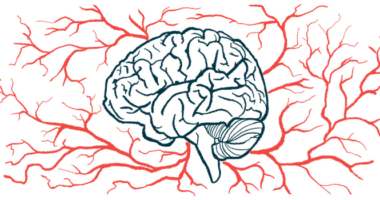Problem-Solving Intervention May Help SCD Teens to Transition to Adulthood, Study Shows

Development of problem-solving skills may help adolescents with sickle cell disease prepare for the transition to adulthood and also improve their ability to self-manage their health.
Researchers at the Boston University Medical Center conducted a study to gain better insight on the perspectives of sickle cell disease (SCD) patients and their parents on the development of a problem-solving education (PSE) intervention to improve SCD self-management in the transition phase.
Their findings were described in a study, “Developing a problem-solving intervention to improve self-management and transition readiness in adolescents with sickle cell disease,” that was published at the Journal of Pediatric Nursing.
Advances on the treatment of SCD have significantly improved the quality of life for these patients and, more importantly, have helped many children with SCD reach adulthood. However, this prolonged survival also has created new challenges that arise from managing the disease in the new biological and psychosocial stage that adulthood represents.
Finding strategies to provide appropriate support and care to SCD patients during the transition from childhood to adulthood now has become a major concern for clinicians and a critical step to achieve the best outcomes for SCD patients.
Until now, most proposed transition programs were focused mainly on adjusting the behavior of the care provider, with little to no inclusion of improved self-management skills.
PSE is a form of cognitive-behavioral therapy that teaches problem-solving skills as a way to cope with life stressors. It has shown to be a viable and effective way to improve outcomes in the context of chronic diseases.
“Problem solving skills are an integral part of disease self-management, perhaps especially so for adolescents with SCD,” researchers wrote.
SCD patients have to deal with both predictable tasks, including daily treatments and frequent clinic visits, as well as coping with unpredictable events such as managing acute pain or handling issues at work or school. So, enhanced problem-solving skills may represent a viable strategy for SCD adolescents to manage the different stressors that may contribute to worsening their disease.
This type of intervention consists of a series of sessions in which the participant is guided to select a problem they are dealing with, establish a goal, and generate and implement potential solutions.
Study design
In order to design a PSE intervention program, researchers conducted interviews to identify the main themes that both SCD patients and their caregivers believe a PSE should contain.
The study included a total of 17 adolescents with SCD and 15 adult caregivers who were included in five discussion groups. The interviews identified four main themes of concern: SCD management; transfer of responsibility from caregiver to adolescent; emotional and social support, and; cultural expectations.
In general, adolescent SCD patients expressed their motivation about starting to manage their own health. But both adolescents and caregivers recognized the need for additional help to support this developing independence.
In contrast, caregivers expressed their concerns in “letting go” and allowing adolescents to independently manage their disease. Interestingly, the concern of caregivers about the ability of their children to manage their health on their own was closely linked to race.
“Understanding that caregivers may not feel safe allowing their adolescent children to be outside on their own because of fear of violence” is an important factor to be taken into account when developing PSE interventions, as well as in “how healthcare providers talk to parents about transition.”
As expected, adolescents highlighted the importance of including in a PSE intervention strategies to stay healthy while living with SCD, such as drinking water, staying warm, and taking medication regularly. “Sharing tips for accomplishing these basic self-management tasks may be a key benefit of having group PSE sessions,” researchers stated.
In addition, a sense of “fitting in” was discussed by both patients and caregivers, as social interactions and behavioral changes have a significant impact on natural transition to adulthood. So, group meetings were suggested by almost all participants as a way to add an important level of social support to the intervention.
Still, both adolescents and caregivers underscore the critical role of caregivers, and the need for a gradual shift in responsibilities from caregiver to child in the transition process. It became clear that it also is very important to provide support to caregivers and keep them involved in the process by having their own group sessions.
This feature “will make the proposed PSE intervention unique in that it will focus on the role of both parties in shifting responsibility from parent to teen,” researchers said.
Also, maintaining the sessions at locations in the community rather than in a hospital may improve the chances of success for a PSE program.
Supported by these findings, the team now plans to develop a tailored intervention program that should be tested in an adaptive pilot study before moving on to a larger patient population. “Overall this study lays the foundation for the development of a unique PSE based intervention to improve outcomes for these vulnerable patients,” they stated.






